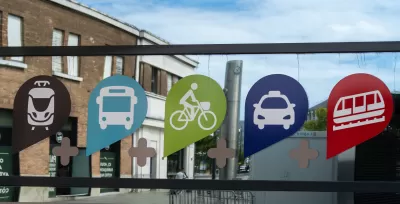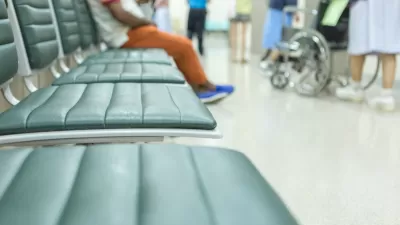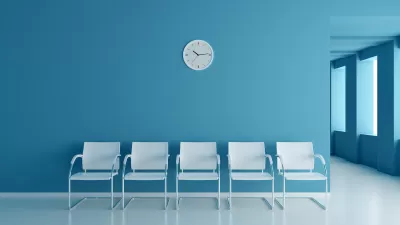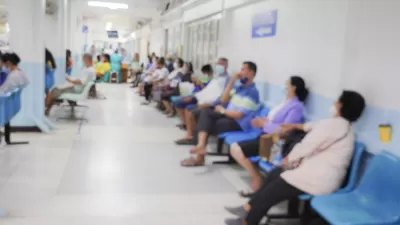An expert discusses the public health implications of the CDC’s new finding that 5.7 percent of Americans face unreliable transportation.

According to a Centers for Disease Control and Prevention (CDC) report released earlier this month, 15 million of American adults—5.7% of the adult population—don’t have access to reliable transportation. Why is the CDC conducting a study on transportation, you might ask? Because lack of transportation isn’t just a mobility issue; it also has far-reaching public health implications, writes Aleyna Rentz in Medical Xpress.
“Previous research has suggested a lack of transportation, especially among adults who are older, uninsured, and have lower incomes, leads to reduced access to health care, which may then lead to adverse health outcomes,” the CDC report said.
Rentz spoke about the findings with Megan Latshaw, associate professor in the Department of Environmental Health and Engineering at the Johns Hopkins Bloomberg School of Public Health, who has examined the health and environmental impacts of unreliable transportation in Baltimore.
People don’t just need transportation to get to doctor’s appointments, Latshaw pointed out, but also to access healthy food, education, and jobs, which also affects people’s health and ability to access quality health care. America’s high reliance on cars has also been tied to health issues caused by air pollution from vehicle emissions, she said.
“We've built America around cars. If you want to get anywhere in the U.S., unless you live in a downtown area, you need to jump in your car to get there. It's unsustainable, and it's not healthy, so we need to figure out a way to move past cars. Doing so will reduce air pollution, reduce greenhouse gases, and also get people walking and biking. And when you take public transportation, it's a social activity, if you think about it,” Latshaw told Rentz.
For better public health, Latshaw said, we need to focus on building better public transit instead of widening highways. “President Hoover had a campaign ad mentioning a car in every yard and a chicken in every pot. I'd like to see an ad calling for ‘a transit stop near every home.’ Not just a transit stop near your home, but a reliable transit system where it's going to come on time and an app that has live feed data. We need to make transit the easy choice, as opposed [to] cars.”
FULL STORY: Q&A: Expert discusses new report on how access to transportation affects public health

Alabama: Trump Terminates Settlements for Black Communities Harmed By Raw Sewage
Trump deemed the landmark civil rights agreement “illegal DEI and environmental justice policy.”

Planetizen Federal Action Tracker
A weekly monitor of how Trump’s orders and actions are impacting planners and planning in America.

The 120 Year Old Tiny Home Villages That Sheltered San Francisco’s Earthquake Refugees
More than a century ago, San Francisco mobilized to house thousands of residents displaced by the 1906 earthquake. Could their strategy offer a model for the present?

LA’s Tree Emergency Goes Beyond Vandalism
After a vandal destroyed dozens of downtown LA trees, Mayor Karen Bass vowed to replace them. Days later, she slashed the city’s tree budget.

Sacramento Leads Nation With Bus-Mounted Bike Lane Enforcement Cameras
The city is the first to use its bus-mounted traffic enforcement system to cite drivers who park or drive in bike lanes.

Seattle Voters Approve Social Housing Referendum
Voters approved a corporate tax to fund the city’s housing authority despite an opposition campaign funded by Amazon and Microsoft.
Urban Design for Planners 1: Software Tools
This six-course series explores essential urban design concepts using open source software and equips planners with the tools they need to participate fully in the urban design process.
Planning for Universal Design
Learn the tools for implementing Universal Design in planning regulations.
Ada County Highway District
Clanton & Associates, Inc.
Jessamine County Fiscal Court
Institute for Housing and Urban Development Studies (IHS)
City of Grandview
Harvard GSD Executive Education
Toledo-Lucas County Plan Commissions
Salt Lake City
NYU Wagner Graduate School of Public Service





























